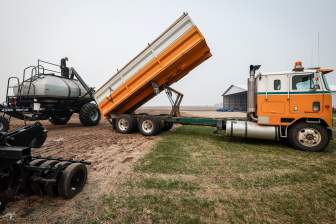Two of the biggest wildfires in B.C. this summer caused more than $127 million in insured damage, reports the Insurance Bureau of Canada (IBC) and Catastrophe Indices and Quantification Inc. (CatIQ).

The wildfires burning near Williams Lake, which eventually merged to become the Plateau Fire, caused almost $100 million in damage to homes, vehicles and businesses. This was the largest fire in B.C.’s history, combining the Chezacut, Tautri, Bishop’s Bluff, Baezaeko, Wentworth Creek, Arc Mountain, and others to become approximately 521,012 hectares in size.
Meanwhile, the Elephant Hill wildfire caused more than $27 million in damage and the evacuation of tens of thousands of residents to emergency centres in Kamloops, Prince George, and across B.C.

Get breaking National news
MAP: Wildfires burning around B.C.
The Elephant Hill wildfires remains a wildfire of note in B.C., having grown to 192,725 hectares. It is now 95 per cent contained.
“The size and scale of the wildfires this summer have been the largest in British Columbia’s history,” said Aaron Sutherland, vice-president, Pacific, IBC, in a release.
“These wildfires are yet more evidence that severe weather events are happening with greater frequency and intensity across Canada. Given these trends, a more disciplined and sustained approach is required to help British Columbians prepare for natural disaster. Governments, businesses, and individuals all have a role to play to help build a culture of preparedness in this province.”
READ MORE: 2017 BC wildfire season ‘the new normal’: province urged to act
Professors from UBC and the University of Northern British Columbia, along with fire ecologists, have drafted a letter to the province saying they believe 2017’s record-setting fire season “represents the new normal and is part of a global trend of increasing mega-fires.”
They have come up with dozens of recommendations they believe the province should implement to address the wildfire challenge.
Among other things, the recommendations call on the province to improve its ability to do prescribed burns and to make it a priority to decrease the fire hazard around rural communities.
-With files from Megan Turcato









Comments